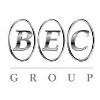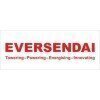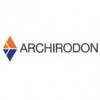Filter interviews by
Ravi Infrabuild Projects Interview Questions and Answers
9 Interview questions
My passion for people and organizational success led me to choose HR as a career path, where I can make a meaningful impact.
I have always been fascinated by human behavior and how it influences workplace dynamics.
During my college years, I volunteered for a student organization, helping to mediate conflicts and improve team collaboration.
I believe that a strong HR function can drive employee engagement, which I wi...
The recruitment process involves identifying, attracting, and selecting candidates for job openings within an organization.
1. Job Analysis: Define the role and responsibilities. Example: Creating a job description for a software developer.
2. Sourcing Candidates: Use various channels like job boards, social media, and referrals. Example: Posting on LinkedIn.
3. Screening Resumes: Evaluate applications to shortlist c...
Hydraulics work by using a liquid to transmit force from one point to another.
Hydraulics use incompressible fluids, typically oil or water, to transmit force.
A pump pressurizes the fluid, which is then directed through hoses to a hydraulic cylinder or motor.
The pressure of the fluid creates a force that can be used to move heavy objects or perform work.
Hydraulics are commonly used in heavy machinery, such as excav...
CTB is used in flexible pavement for stabilization and to improve strength and durability.
CTB stands for Cement Treated Base
It is used to stabilize the subgrade and improve the strength of the pavement
CTB helps to reduce the amount of deformation and cracking in the pavement
It also improves the durability of the pavement by reducing the effects of moisture and freeze-thaw cycles
CTB is commonly used in areas with p...
Subgrade thickness of 500mm is used for stability and durability of the road.
Provides adequate support to the pavement layers
Reduces the risk of settlement and deformation
Improves the overall performance and longevity of the road
May vary depending on soil type and traffic volume
Commonly used in road construction standards worldwide
BBS is based on IS 2502:1963 code.
BBS stands for Bar Bending Schedule.
IS 2502:1963 is the Indian Standard Code of Practice for Bending and Fixing of Bars for Concrete Reinforcement.
It provides guidelines for the preparation of bar bending schedules for RCC work.
BBS is used to determine the quantity of steel required for a given RCC structure.
It helps in reducing wastage of steel and ensures proper reinforcement in...
In shuttering work of a structure, we should check for proper alignment, adequate support, and quality of materials.
Check if the shuttering is aligned properly to ensure accurate dimensions and shape of the structure.
Ensure that the shuttering is adequately supported to prevent any collapse or deformation during concrete pouring.
Inspect the quality of materials used for shuttering, such as plywood or steel, to ens...
Bulk materials refer to large quantities of raw materials or products, typically used in construction projects. Road projects often use bulk materials like gravel, asphalt, and concrete.
Bulk materials are materials that are transported and stored in large quantities, such as gravel, sand, asphalt, concrete, and soil.
These materials are commonly used in construction projects, including road construction sites.
Road ...
Handling store minimum balance on a monthly basis and following standard operating procedures.
Monitor store's minimum balance regularly to ensure it meets requirements
Implement SOPs for handling minimum balance, including tracking, reporting, and replenishing
Train staff on proper procedures for maintaining minimum balance
Utilize software or tools to automate tracking and alerts for low balances
Regularly review and...
Ravi Infrabuild Projects Interview Experiences
6 interviews found
I applied via Recruitment Consulltant and was interviewed before Dec 2023. There was 1 interview round.
(2 Questions)
- Q1. What made you choose HR?
- Ans.
My passion for people and organizational success led me to choose HR as a career path, where I can make a meaningful impact.
I have always been fascinated by human behavior and how it influences workplace dynamics.
During my college years, I volunteered for a student organization, helping to mediate conflicts and improve team collaboration.
I believe that a strong HR function can drive employee engagement, which I witness...
- Q2. What is the recruitment process?
- Ans.
The recruitment process involves identifying, attracting, and selecting candidates for job openings within an organization.
1. Job Analysis: Define the role and responsibilities. Example: Creating a job description for a software developer.
2. Sourcing Candidates: Use various channels like job boards, social media, and referrals. Example: Posting on LinkedIn.
3. Screening Resumes: Evaluate applications to shortlist candid...
I applied via Company Website and was interviewed in Mar 2024. There was 1 interview round.
(1 Question)
- Q1. How does hydraulics work
- Ans.
Hydraulics work by using a liquid to transmit force from one point to another.
Hydraulics use incompressible fluids, typically oil or water, to transmit force.
A pump pressurizes the fluid, which is then directed through hoses to a hydraulic cylinder or motor.
The pressure of the fluid creates a force that can be used to move heavy objects or perform work.
Hydraulics are commonly used in heavy machinery, such as excavators...
Interview Preparation Tips
I applied via Naukri.com and was interviewed before Apr 2023. There were 2 interview rounds.
(2 Questions)
- Q1. My experience how many years in store manager post
- Ans.
I have over five years of experience as a store manager, leading teams and driving sales in a retail environment.
Managed a team of 15 employees, focusing on training and development to enhance customer service.
Increased store sales by 20% year-over-year through strategic promotions and inventory management.
Implemented a new scheduling system that improved staff efficiency and reduced labor costs by 10%.
Conducted regula...
- Q2. Manpower handling the store
(2 Questions)
- Q1. Bulk materials meaning & which plant construction site uses the road project
- Ans.
Bulk materials refer to large quantities of raw materials or products, typically used in construction projects. Road projects often use bulk materials like gravel, asphalt, and concrete.
Bulk materials are materials that are transported and stored in large quantities, such as gravel, sand, asphalt, concrete, and soil.
These materials are commonly used in construction projects, including road construction sites.
Road proje...
- Q2. Store minimum balance handling on a monthly and sop full from
- Ans.
Handling store minimum balance on a monthly basis and following standard operating procedures.
Monitor store's minimum balance regularly to ensure it meets requirements
Implement SOPs for handling minimum balance, including tracking, reporting, and replenishing
Train staff on proper procedures for maintaining minimum balance
Utilize software or tools to automate tracking and alerts for low balances
Regularly review and adju...
Interview Preparation Tips
I applied via Approached by Company and was interviewed before Sep 2023. There was 1 interview round.
(4 Questions)
- Q1. Discuss for Salary ctc
- Q2. Total experience
- Q3. Knowledge for purchase proses sap
- Q4. Purchase requisition
I applied via Company Website and was interviewed in Mar 2021. There were 3 interview rounds.
Interview Questionnaire
5 Questions
- Q1. About earthworks , flexible and rigid pavement .and also about specifications of morth used in highways and structures.
- Q2. About VUP, SVUP , LVUP in structure field.
- Q3. Why did we use subgrade thickness always as 500mm thick ~?
- Ans.
Subgrade thickness of 500mm is used for stability and durability of the road.
Provides adequate support to the pavement layers
Reduces the risk of settlement and deformation
Improves the overall performance and longevity of the road
May vary depending on soil type and traffic volume
Commonly used in road construction standards worldwide
- Q4. Why do we need to use CTB in flexible pavement.
- Ans.
CTB is used in flexible pavement for stabilization and to improve strength and durability.
CTB stands for Cement Treated Base
It is used to stabilize the subgrade and improve the strength of the pavement
CTB helps to reduce the amount of deformation and cracking in the pavement
It also improves the durability of the pavement by reducing the effects of moisture and freeze-thaw cycles
CTB is commonly used in areas with poor s...
- Q5. CBR test, Procter test, Viscosity test for DBM?
Interview Preparation Tips
Interview Questionnaire
4 Questions
- Q1. 1. What do you know about culvert?
- Ans.
A culvert is a structure that allows water to flow under a road, railway, or other obstruction.
Culverts are typically made of concrete, steel, or plastic.
They are used to prevent flooding by directing water away from roads and structures.
Culverts can be round, rectangular, or elliptical in shape.
They are designed to handle specific flow rates and water volumes.
Examples of culverts include box culverts, pipe culverts, a...
- Q2. 2. What should we check in shuttering work of structure?
- Ans.
In shuttering work of a structure, we should check for proper alignment, adequate support, and quality of materials.
Check if the shuttering is aligned properly to ensure accurate dimensions and shape of the structure.
Ensure that the shuttering is adequately supported to prevent any collapse or deformation during concrete pouring.
Inspect the quality of materials used for shuttering, such as plywood or steel, to ensure t...
- Q3. 3. On which IS code, BBS is based?
- Ans.
BBS is based on IS 2502:1963 code.
BBS stands for Bar Bending Schedule.
IS 2502:1963 is the Indian Standard Code of Practice for Bending and Fixing of Bars for Concrete Reinforcement.
It provides guidelines for the preparation of bar bending schedules for RCC work.
BBS is used to determine the quantity of steel required for a given RCC structure.
It helps in reducing wastage of steel and ensures proper reinforcement in the ...
- Q4. IS 2502
Interview Preparation Tips
Don't give incorrect explanation in case of absence of answer
Top trending discussions






Interview questions from similar companies

I applied via Campus Placement and was interviewed before Aug 2020. There were 6 interview rounds.
Interview Questionnaire
2 Questions
- Q1. List out some of the best practice for data cleaning.
- Ans.
Data cleaning best practices
Remove duplicate records
Handle missing values
Standardize data formats
Correct inconsistent data
Validate data integrity
Remove outliers
Normalize data
Handle data inconsistencies
Ensure data accuracy
- Q2. Explain what is logistic regression?
- Ans.
Logistic regression is a statistical method used to analyze and model the relationship between a categorical dependent variable and one or more independent variables.
It is a type of regression analysis used for predicting the probability of a categorical outcome
It is commonly used in binary classification problems
It uses a logistic function to model the relationship between the independent variables and the dependent v...
Interview Preparation Tips
Skills evaluated in this interview

I applied via Company Website and was interviewed in Aug 2020. There were 6 interview rounds.
Interview Questionnaire
1 Question
- Q1. Aptitude consist Logical very important and then few programming error find and then quantitative
Interview Preparation Tips

I applied via Recruitment Consultant and was interviewed in Feb 2021. There were 3 interview rounds.
Interview Questionnaire
3 Questions
- Q1. More related to the understanding of my project. How well I am able to make them understand my current project.
- Q2. Question related to AWS Services, Serverless & Micro Service based architecture
- Q3. Why J&F
- Ans.
J&F offers innovative solutions and a collaborative environment that aligns with my career goals and values as a software engineer.
Innovative Projects: J&F is known for its cutting-edge technology initiatives, such as their recent AI-driven analytics platform.
Collaborative Culture: The company fosters teamwork, allowing engineers to share ideas and learn from each other, enhancing personal growth.
Career Develop...
Interview Preparation Tips

I applied via Naukri.com and was interviewed before Oct 2020. There were 6 interview rounds.
Interview Questionnaire
3 Questions
- Q1. What technologies you have worked on till now?
- Q2. What are your projects and how you tackle them?
- Q3. One Case Study given according to profile.
Interview Preparation Tips
Ravi Infrabuild Projects Interview FAQs
Tell us how to improve this page.
Ravi Infrabuild Projects Interviews By Designations
- Ravi Infrabuild Projects Senior Engineer Interview Questions
- Ravi Infrabuild Projects Purchase Executive Interview Questions
- Ravi Infrabuild Projects Store Manager Interview Questions
- Ravi Infrabuild Projects Structural Design Engineer Interview Questions
- Ravi Infrabuild Projects Senior HR Executive Interview Questions
- Ravi Infrabuild Projects Hydraulic Mechanic Interview Questions
Interview Questions for Popular Designations
Overall Interview Experience Rating
based on 12 interview experiences
Difficulty level
Duration
Interview Questions from Similar Companies
Ravi Infrabuild Projects Reviews and Ratings
based on 112 reviews
Rating in categories
3-5 Yrs
Not Disclosed
|
Store Keeper
12
salaries
| ₹2.2 L/yr - ₹3 L/yr |
|
Mechanical Engineer
8
salaries
| ₹3.2 L/yr - ₹6 L/yr |
|
QA QC Engineer
6
salaries
| ₹4.2 L/yr - ₹5.8 L/yr |
|
Junior Engineer
6
salaries
| ₹1.2 L/yr - ₹3.8 L/yr |
|
Highway Engineer
6
salaries
| ₹3 L/yr - ₹5.5 L/yr |

J K Fenner

Saudi Binladin Group

Bahwan Engineering

Amara Raja Infra
- Home >
- Interviews >
- Ravi Infrabuild Projects Interview Questions












